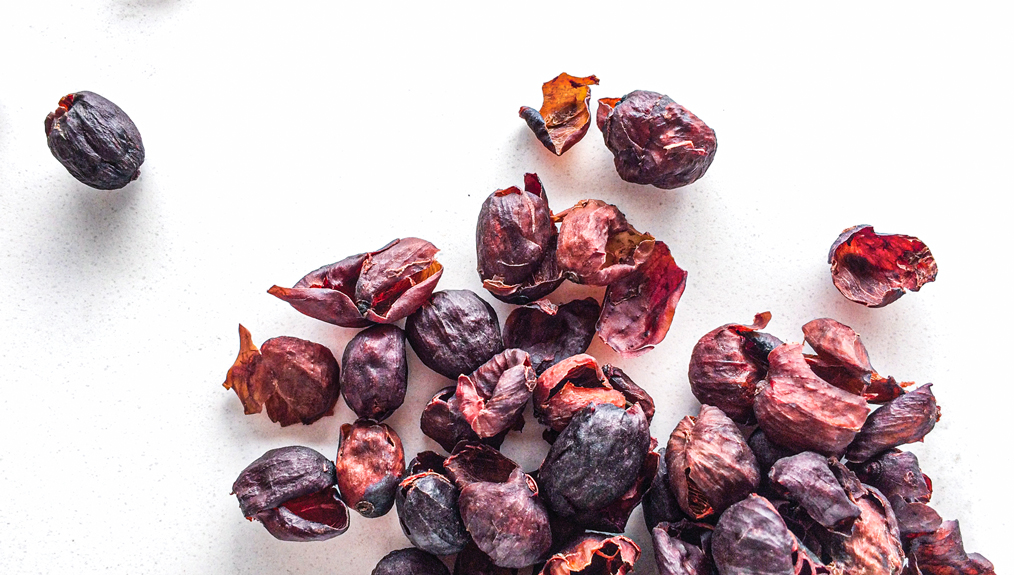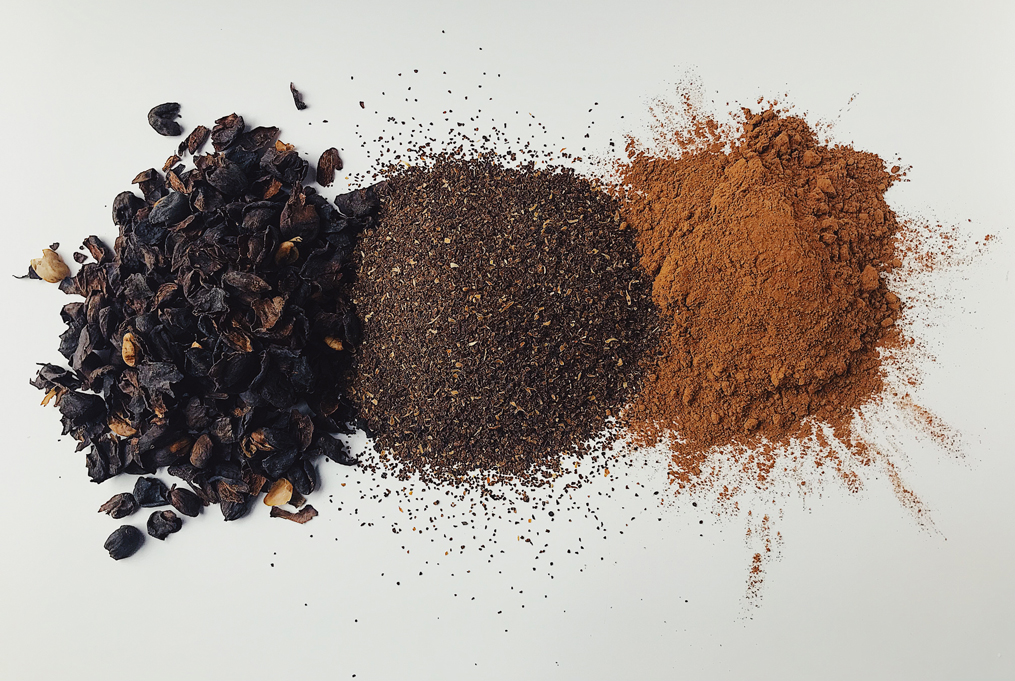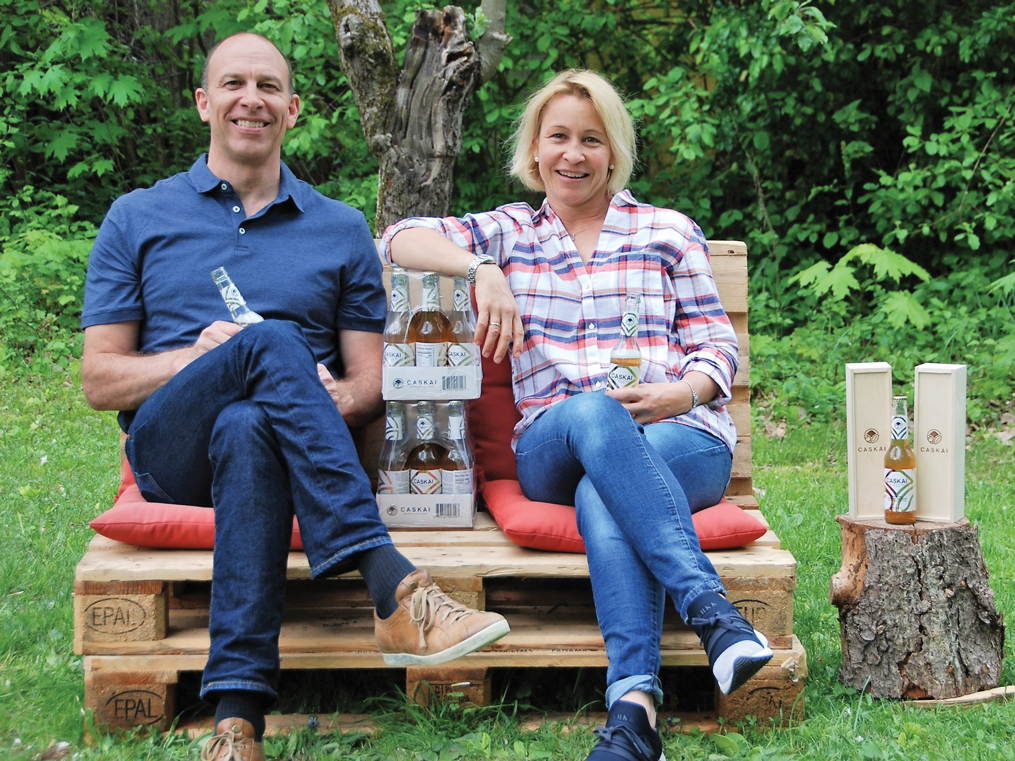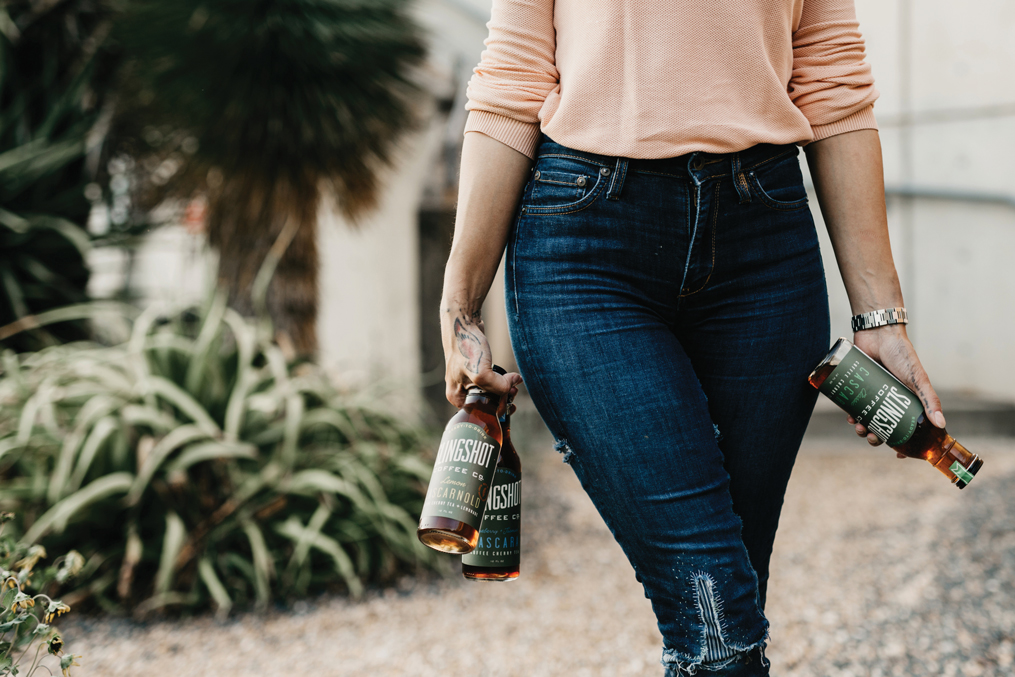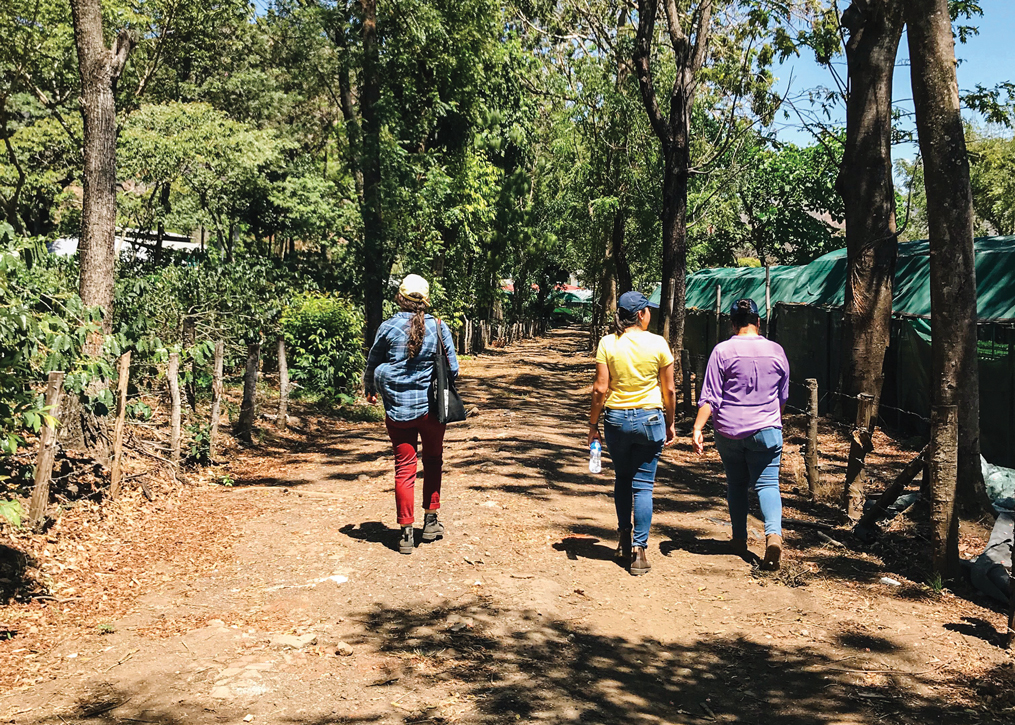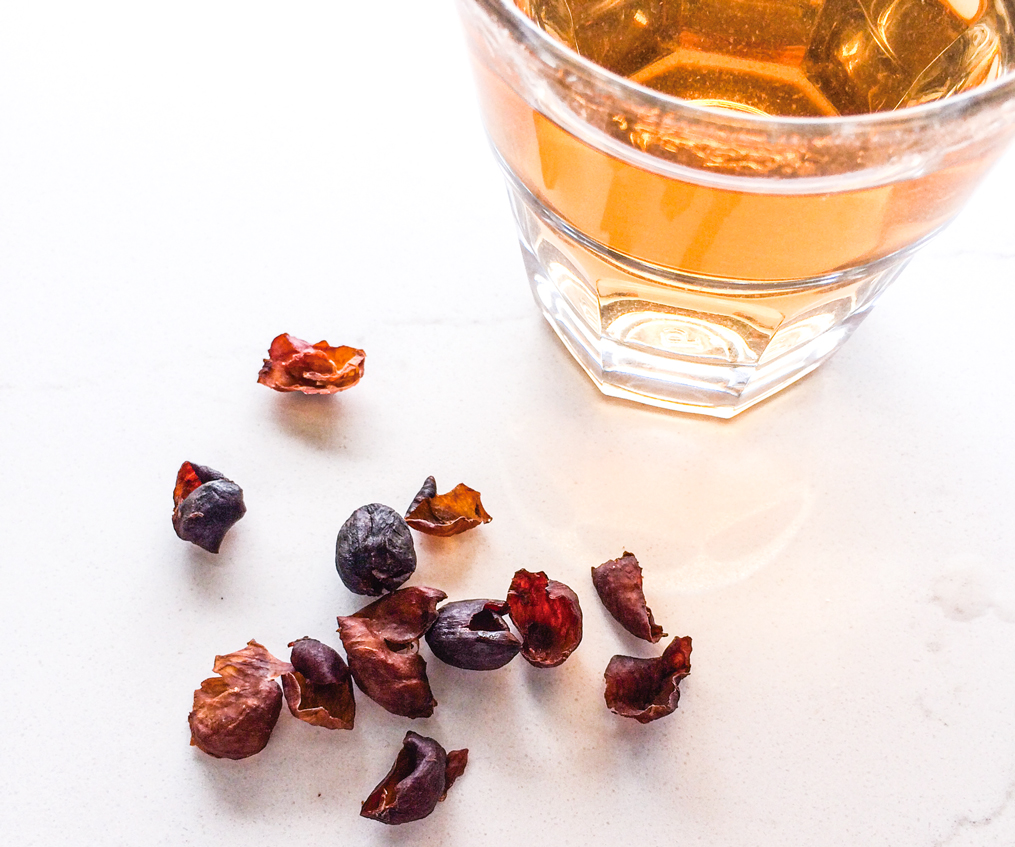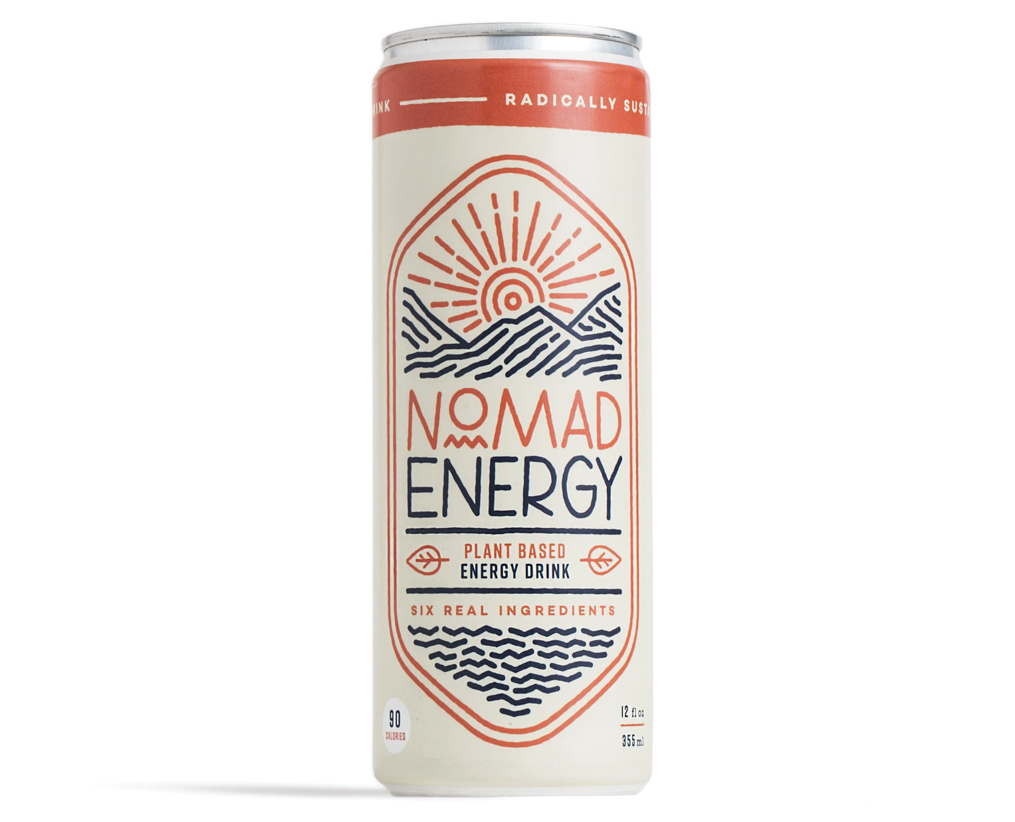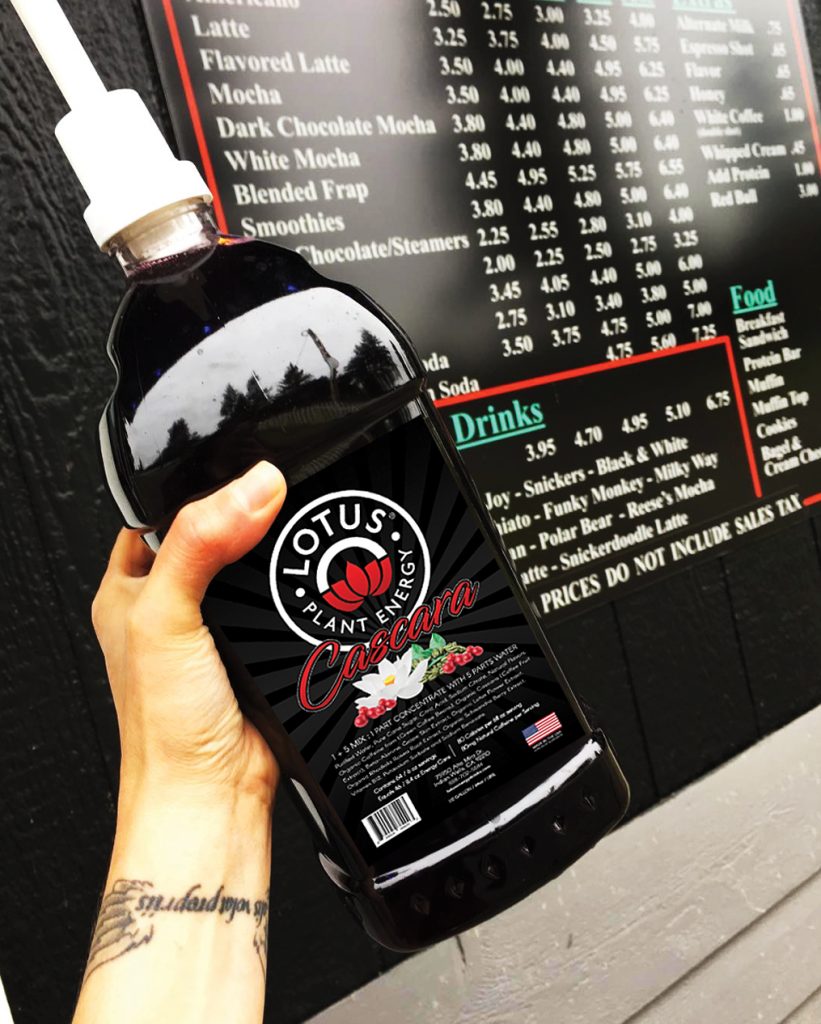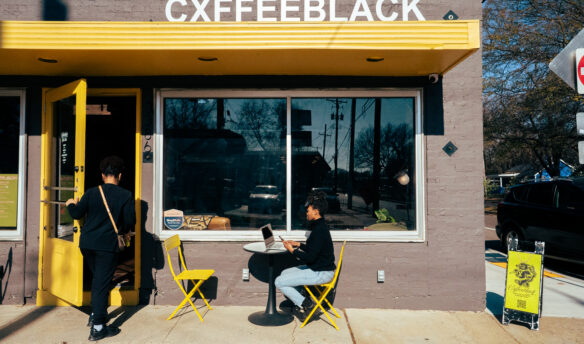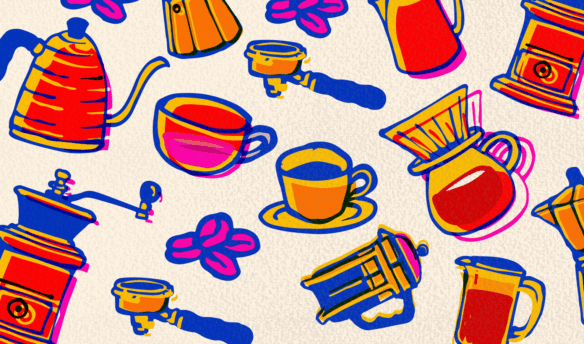From Starbucks to Shake Shack, cascara has been popping up on menus everywhere, including specialty coffee shops and teahouses. When Fresh Cup wrote about cascara in 2014, no one predicted it would be our most-read article.
But what’s changed since then?
Fresh Cup spoke with several coffee and tea professionals about what cascara has been up to the last few years—and where it’s headed.
Cascara 101
Coffee beans are the pit of the coffee fruit, while cascara, or coffee cherry, is the fruit or husk surrounding the pit. Cascara takes several months to mature and appears dark red when it is ready. Like coffee beans, the taste of the cascara is based on where it is grown. Cascara is often described as tasting like rose, mango, and hibiscus.
For generations, farmers traditionally discarded cascara for compost or dumped it in waterways after strip picking, a process where coffee cherries—ripe, overripe, and underripe—are taken off all at once. While some farms have the equipment to pick selectively (only taking the cherries ready to go), that can be pricey.
After the picking process, cascara is dried before being packed up and shipped to other countries, where it can be transformed into various products.
The Beginning of the Groundswell
Businesses have begun to see cascara-based products as not only a way to reduce waste but as a way to introduce this plentiful product to consumers. And on the way, companies are finding they need to illustrate what cascara is first.
The Coffee Cherry Co. makes coffee flour, created by taking the coffee fruit and making it into a powder that can be stirred into beverages. It offers chopped cascara, as well as coarse and fine ground powders. The company’s founder, Dan Belliveau, a former director of engineering for Starbucks, started the company after he visited a mill on a work trip.
“There, [Belliveau] saw large massive piles of fruit rotting,” says Carole Widmayer, senior vice president of sales and marketing at Coffee Cherry Co. “He spoke to the owners and found out that it was, in fact, a byproduct of the bean. It is just what happens with green coffee production—he thought there had to be a better way.
Widmayer continues: “The mill owner said he would be a genius if he figured out something. Lucky for us, he is. He took this on and ultimately came up with something very functional, requiring a minimal capital investment for mills and farms.”
Belliveau spent two years creating a dehydration process that allowed the product to be food-safe, and after building partnerships with supply partners, the flour became readily available.
“People thought it might be a substitution for all-purpose flour when that is not the case,” says Widmayer. “It is more like a cocoa powder consistency and adds color, flavor, and nutrition. Our first step was to help people understand how to use the product.” The Coffee Cherry Co.’s cascara is sourced from multiple countries, including Vietnam and Papua New Guinea, which gives the company a consistent supply in case of variable growing seasons.
“We are really trying to gear up and see [cascara] taking off. We are speaking to many companies evaluating this in beverages, chocolate, baking, and snacks. This is the beginning of the groundswell…not quite mainstream yet, but still cutting-edge and leading,” says Widmayer. “People are beginning to learn and understand coffee cherries and their benefits. If it didn’t taste great, none of this would matter.”
A Powerhouse
Caskai is a sparkling cascara drink and the brainchild of husband-and-wife team Joel Jelderks and Uschi Zimmermann. Zimmermann launched Panama Varietals Coffee, a green coffee importer of Panamanian specialty coffee, and began noticing her European clients asking for cascara back in 2013.
Two years later, her husband joined her team, and they began imagining a line of cascara products. They began sourcing their cascara from Panama Varietals Coffee, which uses a sun-drying method it calls its “Premium Sun-Dried Cascara.”
Upcycling has been at the forefront of deciding why to work with cascara in the first place. Caskai’s focus on upcycling and research sets it apart from other brands, says Jelderks. “[Cascara] may be used as compost at farms, but most of it is still being thrown away. There is no commercial value, making this a genuine upcycled product. Two, I like the flavor. Three, the nutritional qualities of cascara are quite interesting. Of course, it has some caffeine but is high in potassium, fatty acids, and certain polyphenols. It is quite a little powerhouse.”
Caskai crowdfunded its first drink launch, the Sparkling Cascara Infusion, which won awards at two Coffee Fests in 2018. Moving into 2020, Caskai is looking to expand into the United States after being bottled initially in Austria, where Zimmermann and Jelderks live. The company plans to launch two new products, including a cold brew.
The future of product development is an exciting part of being involved in cascara, says Jelderks, and watching himself and others working with it is just the beginning. “There is a lot of education that needs to happen still, from the farmers to the consumers,” he says. “It’ll take time and people sharing their knowledge.”
Building Direct Relationships
Sourcing cascara can be difficult for folks hoping to hop on the cascara train. A handful of companies are taking the initiative to work directly with farmers.
Slingshot Coffee Co. began bottling cascara tea in 2013—before many companies even knew what the coffee cherry could do. Award-winning barista Jenny Bonchak started the North Carolina-based company to sell single-origin cold brew but soon branched out into cascara. Slingshot’s single-origin cascara comes in three ways: Classic Cascara Tea, Blueberry and Jasmine Cascara Tea, and Cascarnold, an Arnold Palmer-style cascara tea.
“As we have scaled production, we have stayed true to what we set out to do,” says Bonchak. “Since day one, we have worked exclusively with one coffee farmer.” Slingshot Coffee works with Aida Batlle, a fifth-generation coffee farmer in Santa Ana, El Salvador, nicknamed the “godmother of cascara in the Western Hemisphere.”
“[Batlle] really was the one to dub cascara in the third-wave movement about 15 years ago,” says Bonchak. “It has been amazing to work with her, [a person] who has been at the forefront of cascara production since day one. It’s been a real privilege…We want to celebrate the fact that she has so much knowledge and interest in how she does her process, and it aligns with our mission to use the best ingredients and the highest quality.”
Slingshot chooses to source directly from Batlle because Bonchak values transparency and wants to bring the best product to consumers. “We know that our cascara is coming from Aida’s farm, and that is a huge differentiator right there,” says Bonchak. “My husband and I are award-winning baristas, so we have developed palates…and we take what makes us excited about coffee and apply it to cascara. We feel cascara is [reusing] food waste, and try to do our part in a coffee-growing country to take that waste and provide a secondary source of revenue for our coffee-growing partner.”
Ontario-based Detour Coffee Roasters currently sells its Coffee Cherry Tea online and at its flagship café. Like Slingshot, Detour partners with one farm, returning to the same micro mill in Costa Rica because of its drying technique, says Ryan McCabe, Detour’s co-director.
“We are lucky to work with Helsar de Zarcero for one of our favorite West Valley Costa Rican coffees, Finca Santa Lucia,” he says. “We return to them for their coffee yearly based upon cup quality, and as a result can import their cascara directly alongside coffee shipments.”
Ricardo Perez Barrantes, who co-runs the micro mill, now owns a separate facility dedicated to producing cascara. “Costa Rican coffee producers are known for their expertise at the micro-mill level. This mill, in particular, has developed an extremely clean, safe drying technique for cascara,” says McCabe. “This allows them to produce food-grade, exportable cascara…when brewing cascara to drink at the mill, they grind it to a medium-coarse size before brewing, and the resulting cup is absolutely delicious.”
A Super Boost
Cascara products are tapping into what brewed coffee can do: provide caffeine needed to start the day. While cascara has significantly less caffeine than coffee beans, companies like Lotus Energy in Los Angeles and Nomad Trading Co. in Brooklyn noticed that consumers are intrigued by what cascara can provide.
Nomad Trading Co. began importing thousands of pounds of cascara in bulk when it launched its operation in 2016. After realizing they imported too much, they decided to bottle the cascara. After sampling the drinks at local Whole Foods stores, business partners Max Keilson and Jon Epstein noticed when customers tried their product, the promised energy boost was a quick draw.
“What we kept hearing was people were into the caffeine,” says Keilson. “People wanted the feel of coffee but not the taste, or wanted something different, or have tried energy drinks and felt it was bad for them. Through this feedback process, we developed a cascara-based energy drink using cold-brewed cascara, lemon juice, maple syrup, and a little salt. We’ve been selling that ever since.”
Nomad Energy will launch four new flavors this year and expand its stock list toward the Midwest. “We are excited to get this out there,” says Keilson. “We are playing with the tastes of different fruits that will complement cascara, so you get a different palate, not just the taste of cascara.”
Cascara is not just a fruit for Lotus Energy but a “superfruit.” Lotus Energy’s cascara has gone through a patented extraction and stabilization process, according to owner Scott Strader; by doing so, the nutritional value of the fruit stays as high as possible.
Cascara is rich in antioxidants, such as polyphenols found in plant-based ingredients, and has less than half the caffeine of coffee. “If you don’t stabilize it, it would be like taking a cherry and letting it rot. It doesn’t work. You have to do this immediately. Just like coffee, when you get to different altitudes, the cascara will taste different,” says Strader.
“Cascara might be one of the most nutritious superfruits there is on earth. With Lotus, we look for energizing superfruits because everything in our drinks has a unique efficacy that moves our product forward. This was the missing link to our story, which has been unique for us.”
Lotus Energy, operating since 2015, produces a cascara concentrate, which can be added to smoothies and spritzers, among other recipes. Not only does it contain cascara, but it also lists green coffee beans for extra caffeine. Its product lineup, found in coffee shops across the country, will continue to expand in the coming years. According to Strader, Cascara’s nutritional properties are a draw to Lotus in its product line, and a large reason customers add it to their drink orders.
“It is off the charts on what it can do for the human body,” he says. “I also love its amazing flavor, and it almost has a raisin-like, raspberry flavor. When people look back on this, I think they will be going, ‘The only superstar in the coffee plant is not only the bean, it is the fruit.'”
A Global Topic
Our 2014 article “What is Cascara?” closed with: “The dried cherries serve as a tool to teach people about where coffee comes from and how it’s made. The result is win-win: Cafés have the opportunity to educate and expand their audience, while consumers learn more about the coffee industry and try something new.”
This continues to hold true today.
While cascara is still young on the specialty coffee scene, it does not appear to be going anywhere. Companies are seeing it not only as a way to educate the public on coffee as a fruit but as a means to accelerate the industry’s future as it moves into the next decade with a focus on sustainability.
“This is on-trend for sustainability and upcycling movement toward food,” sums up Caskai’s Jelderks. “Cascara fits right into nutritional and health benefits, and the research supports more and more that it is healthy. As people move toward plant-based energy drinks and functional foods, cascara will be a part of that…it’s becoming a global topic.”
“It is off the charts on what it can do for the human body,” he says. “I also love it for its amazing flavor, it almost has a raisin-like, raspberry flavor to it. When people look back on this, I think they will be going ‘The only superstar in the coffee plant is not only the bean, it is the fruit.’”
Cover photo courtesy of Helsar de Zarcero
This article was originally published on December 31, 2019, and has been updated to reflect Fresh Cup’s current editorial standards.

